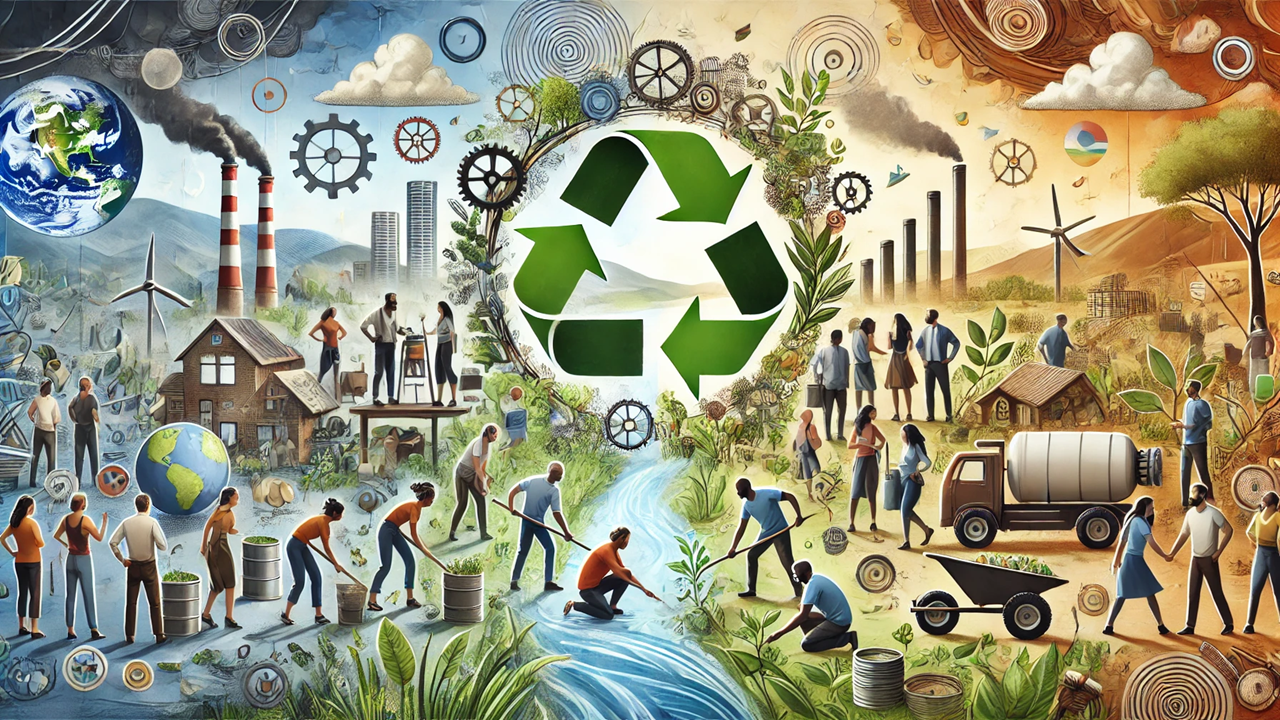Global Poverty Reduction Stalls: Key Insights from the 2024 Report
The "Poverty, Prosperity, and Planet Report 2024" by the World Bank highlights stalled progress in poverty reduction, persistent economic inequality, and the escalating climate risks faced by poorer regions. The report underscores the need for inclusive economic growth, effective climate resilience strategies, and international collaboration to address these challenges and achieve sustainable development.

The World Bank’s "Poverty, Prosperity, and Planet Report 2024" urgently examines the current state of global poverty, economic inequality, and climate vulnerability. The report paints a complex picture of stalled progress, rising risks, and the need for cohesive, innovative strategies in a world grappling with interconnected crises.
Poverty Reduction: A Stalled Mission
Global efforts to reduce extreme poverty have faltered, with 8.5% of the world’s population—roughly 692 million people—still living on less than $2.15 per day. This slight decrease from pre-pandemic figures highlights that the world is not on track to meet the 3% goal by 2030. More alarmingly, nearly half of the global population, around 3.5 billion people, still survive on less than $6.85 daily, showing little change since the 1990s due to continuous population growth.
Inequality and Economic Strains
Despite some progress, significant income inequality persists. While the number of high-inequality economies fell from 66 to 49 over the past decade, 1.7 billion people remain in these settings, primarily in Sub-Saharan Africa and Latin America. The "Global Prosperity Gap" concept introduced in the report underscores the economic disparity, where the global average income remains far below the $25 daily benchmark for high-income status. The poorest regions face immense barriers to catching up, hindering global prosperity.
The Impact of the Polycrisis
The report highlights the compounded challenges of the current “polycrisis”—a blend of the COVID-19 pandemic's economic scarring, geopolitical conflicts, inflation, and societal instability. These interwoven crises have disproportionately affected low-income and fragile states, slowing their recovery and exacerbating poverty. Sub-Saharan Africa, in particular, has seen minimal progress as growth rates fail to meet the needs of its expanding population.
Climate Vulnerability: A Growing Threat
The report unveils the harsh reality for regions facing climate threats. Nearly 18% of the world’s population, especially in Sub-Saharan Africa and South Asia, is at high risk from climate hazards due to inadequate coping mechanisms and high vulnerability. Extreme weather events are not only more frequent but also have far-reaching consequences, pushing many back into poverty. The World Bank's new climate risk indicator emphasizes the urgency for protective measures and resilience-building policies.
Pathways for Sustainable Development
Addressing these dual crises—poverty and climate change—requires balanced strategies. The report stresses the importance of inclusive economic growth, creating jobs, and investing in human capital to empower poorer communities. However, this growth must align with climate goals to ensure long-term sustainability. The emphasis on renewable energy, energy efficiency, and risk management can bridge the gap between poverty reduction and emission control, minimizing trade-offs and enhancing resilience.
Synergistic Policies and International Action
The 2024 report highlights that policies targeting multiple outcomes, such as reducing air pollution, offer significant benefits for health and the environment. Boosting agricultural productivity with climate-smart practices and promoting sustainable land use can support poverty alleviation while curbing emissions.
International collaboration remains vital, especially as debt burdens in low-income countries limit their ability to invest in development. The report calls for increased transparency in data, coordinated global action, and targeted investments to tackle these challenges effectively.
A Call for Action
The "Poverty, Prosperity, and Planet Report 2024" by the World Bank serves as a stark reminder of the daunting path ahead. While progress is possible, it demands bold, coordinated efforts focused on inclusive growth, strategic policy decisions, and building resilience against future shocks. In a world facing overlapping crises, the choice to act decisively will determine whether the next decade is marked by progress or continued stagnation.
- FIRST PUBLISHED IN:
- Devdiscourse
ALSO READ
India's Capex Surge: A Path to Sustainable Growth
JK Tyre Drives Sustainable Growth with €30 Million German Loan
India's Green Path to Sustainable Growth: Insights from States' Policy Conclave 2024
Addressing Poverty and Inequality in El Salvador: Strategies for Sustainable Growth
World Bank Reports High Food Prices Driving Child Malnutrition in Laos, Urges Policy Action










